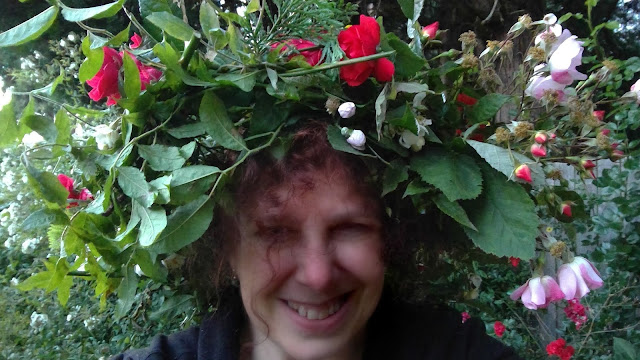Midsummer Rasos Solstice, The Festival of the Dew
After the Teutonic Knights invaded the Baltic lands in the 13th century, they were afraid to enter the dark forests surrounding them. They believed the devils and witches, haunting the woods, would snatch them away to their deaths.
One of the seasons they feared the most was Midsummer night when the local peasants gathered to honor the longest days of the year.
The celebration was called Rasos, derived from the Slavic words Rasa for the glistening droplets of dew that cover meadows at daybreak. The midsummer celebration started with a bonfire in the evening and ended with the rising of the sun. At sunrise farmers went into their fields, pulled a branch, covered with dew, and planted it into the soil to cause a good harvest.
Maidens rose before the sun to collect the dew in handkerchiefs to wash their faces. They believed the dew on Midsummer morning had restorative powers to make their skin bright. Afterward, they crept through the forests, collecting nine herbs and flowers to weave into wreaths to wear on their heads. The various herbs and flowers were most potent during midsummer and carried protective and healing charms.
For Summer Solstice, I woke at just after 4 to celebrate my own version of the Festival of the Dew.
 |
| The sky is light enough that I can wander through the yard without a light |
 |
| barefooted in nature |
 |
| The danger of going barefooted in a yard full of rosebushes. |
 |
My wreath had nine types of plantlife
1.Red Rose: True love; 2. Pink Roses: grace |
 |
| 3. Cedar: strength |
 |
| 4 Cherry: Love, Divination 5 Thistle: dreams |
 |
| 6. Morning glory: love and sadness 7. Clover: Protection & Success 8. Buttercup: riches, joy |
 |
| 9 Blackberry: Healing & Protection |
 |
My finished wreath
|
 |
I finished just in time, the sun is almost visible
 |
 |
| The sun is peeking out |
 |
| The sun!!!! |
 |
| After the dim morning, the sun is blindingly bright |
Happy Summer Solstice everyone! I hope you have a beautiful Summer.



















































